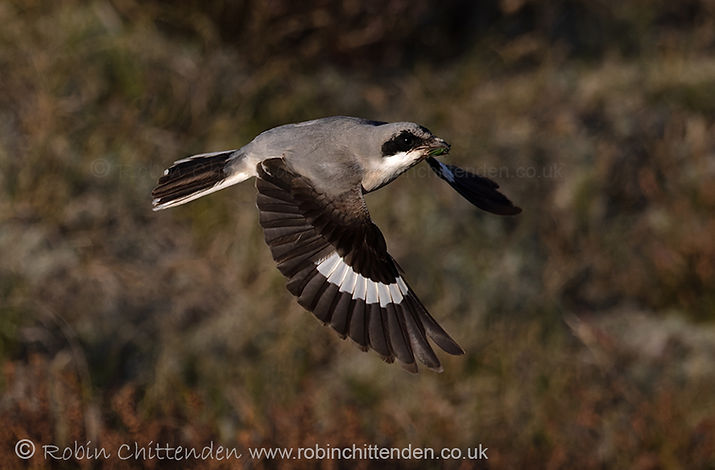%20Winterton%20Norfolk%20September%202025%20ccp2%20crs%20130dpi.jpg)
%20Norfolk%20August%202025%20cp%20crs%20130dpi.jpg)
Upper photo: Lesser Grey Shrike (Lanius minor) Winterton Norfolk September 2025
Lower photo: Swallowtail (Papilio machaon) Norfolk August 2025
Pre-edited version of the 'Wildlife roundup' published in the Winter issue of 'Tern' magazine by the Norfolk Wildlife Trust by Robin Chittenden
Norfolk was visited by three species of raptor more normally associated with the southern Mediterranean. A Black-winged Kite was at NWT Hickling Broad in early September. Could this have been the same bird seen in the same area as in 2023? It’s highly likely. What with record numbers appearing in Holland and a breeding attempt in Denmark, it surely can’t be long before this species becomes a regular sight in the UK. What a delight. Their ghostly pale plumage, with black eye mask and black wing tips, are very eye-catching, and it could join the Kestrel, as another bird of prey that hovers, to look out for on train or car journeys.
In early summer an Eleonora’s Falcon flew west along the beach at Walcott and to complete the threesome a pale morph Booted Eagle was spotted at several sites in Norfolk in late spring. Feather details of this bird identified it as the same bird that had over-wintered in Cornwall. Although an eagle, it is quite small, being a similar size to a Common Buzzard. And the dark morph Booted Eagles, in particular, could easily slip under the radar. Check out their plumage in bird books or on line.
And talking about things that might have been returning birds, there was a very confiding adult Lesser Grey Shrike at Winterton in September. It wowed the crowds, as it pounced on morsels from its lookout perches, often flying down within feet of the observers. There was one last year at the same place and at a similar time, although that one only stayed for a day. Prey included Common Lizard, Devil's Coach-horse Beetle larva, Bumblebee species and Long-winged Conehead (a type of Bushcricket) among other insects. It was a bit of a Shrike Autumn with an Isabelline Shrike, nearby at Happisburgh for a day, and a handful of Red-backed Shrikes that were scattered around the coast.
Also from the southern Mediterranean was the largest ever arrival of Glossy Ibises to southern England. Presumably they had been forced to wander following the drying of their marshy habitats, and venture further north looking for damper conditions. Strange, perhaps, that this movement should coincide with our exceedingly dry summer, but despite this they did find some wet spots to their liking. They have long downward curved bills, like that of Curlew, that are great at extracting food items form soft mud. Norfolk saw many arrive with the highest counts being thirty-four at Breydon Water, thirty-one that flew past NWT Cley Marshes (with up to six remaining), up to twenty-two in the Horsey /Winterton area and up to seventeen at WWT Welney.
As it was such a fine summer many butterflies were able to have second or even a third brood. For example, Swallowtails could again be seen (after spring) at suitable Broadland habitats in August. These photographs were taken at RSPB Strumpshaw Fen. It’s the first time I’ve seen them nectaring (supping sweet nectar from the flowers) on Buddleia. They tend to be in flower only after the first brood of Swallowtails have died off. There have been concerns that as the population of the non-native Chinese Water Deer mushroom that they pose a risk to the long-term survival of the Swallowtail. The Deer will happily browse on the Swallowtail caterpillars’ main food source, the Milk Parsley. Not only will they munch the leaves, but they won’t be picky enough to remove any caterpillars or eggs. It’s also possible the deer might be partial to the eggs of ground nesting birds in marshes, such Marsh Harrier or Bittern, in a similar way to sheep that like to gobble up wader eggs on moorland. The problem is it’s hard to prove what goes on in the middle of a reedbed. Happily, although the caterpillars of Swallowtails, in the Broads, have been perceived as being restricted to eating just Milk Parsley, it now transpires they don’t mind Fennel too. Mind you Chinese Water Deer probably like that as well.

Birdline East Anglia
What’s about today?
Simply phone 09068 700 245 & listen to the latest birds news.
Calls to 09068 700245 & 09068 700254 by mobile or landline cost 65p per minute plus telephone company access charge.
Service provided by Birdline East Anglia. Premium Rate Helpline:
For complaints or queries about the premium rate 090 service please call 0330 3336946 or 07941333970.